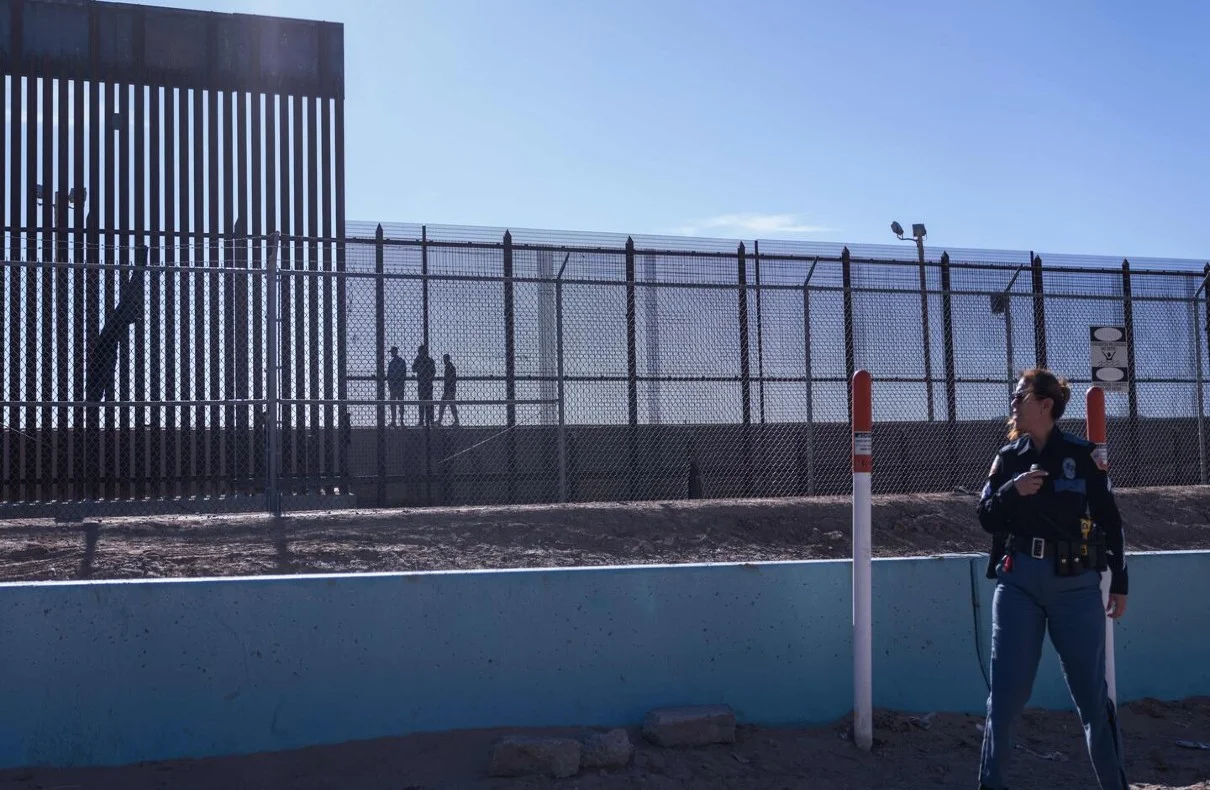
The immigration debate in the United States has taken another turn as a federal judge in Austin has blocked a controversial Texas law that aimed to arrest migrants suspected of being in the country illegally. This ruling comes as a blow to Texas’ efforts to tighten border security and deter illegal crossings.
The law in question, known as Senate Bill 4 (SB4), was signed by Texas Governor Greg Abbott in December as a response to the surge in migration along the Texas-Mexico border. SB4 sought to give law enforcement officials the authority to arrest individuals suspected of crossing the border illegally. It also aimed to require state judges to order the return of migrants to Mexico if convicted, and allowed for the transportation of migrants to the border by local law enforcement.
However, the implementation of SB4 was halted by U.S. District Judge David Ezra in a preliminary injunction. The judge’s order prevents the law from being enforced while the legal battle continues. The federal government, along with several immigration advocacy organizations, filed lawsuits against Texas, arguing that the law is unconstitutional and encroaches on federal authority over immigration.
Judge Ezra’s ruling emphasized the potential harm that the law could cause, not only to migrants but also to the federal government’s ability to regulate immigration uniformly across the country. The judge stated that allowing states to enforce their own immigration measures would create an inconsistent patchwork of rules and violate the Supremacy Clause of the Constitution.
Governor Abbott, a strong advocate for stricter border control, expressed his disappointment with the ruling and vowed to appeal the decision. He believes that the case will ultimately be decided by the U.S. Supreme Court. In a tweet, he stated, “Texas has solid legal grounds to defend against an invasion.”
Texas Attorney General Ken Paxton, responsible for defending SB4 in court, echoed Abbott’s sentiment and pledged to do everything possible to protect Texas’ right to defend itself. Both officials are confident that their arguments will prevail in higher courts.
39 Year Old Man Dead After Shark Attack in Paia Bay
The blocked immigration law has sparked intense debates and raised concerns among various groups. Supporters of SB4 argue that it is necessary to address the border crisis and protect the state from illegal immigration. They believe that Texas should have the authority to enforce its own immigration laws in the absence of sufficient federal action.
On the other hand, opponents of the law, including immigration rights advocates, argue that SB4 could lead to racial profiling and violations of individuals’ rights. They also contend that immigration enforcement should remain under the purview of the federal government to maintain uniformity and prevent discrimination.
The appeal of the federal judge’s decision will be heard by the 5th U.S. Circuit Court of Appeals, known for its conservative leanings. The court has the power to either uphold the preliminary injunction or overturn it. Ultimately, either party could petition the U.S. Supreme Court to review the case, which would have significant implications for immigration policy nationwide.
The blocked Texas immigration law is just one piece of the broader immigration policy puzzle in the United States. The ruling raises questions about the balance of power between the federal government and individual states when it comes to immigration enforcement. It also underscores the need for comprehensive immigration reform at the federal level to address the root causes of migration and establish a clear framework for immigration policy.
The federal judge’s decision to block the Texas immigration law represents a significant setback for the state’s efforts to tighten border security. While the legal battle continues, the implications of this ruling go beyond Texas, highlighting the ongoing debate over immigration policy in the United States. As the case progresses through the appellate courts, the ultimate fate of Senate Bill 4 and its impact on immigration enforcement will be decided, potentially shaping the future of immigration policy in the country.
